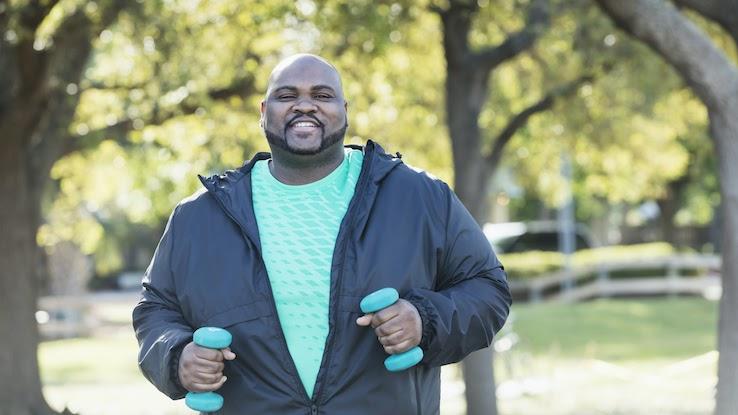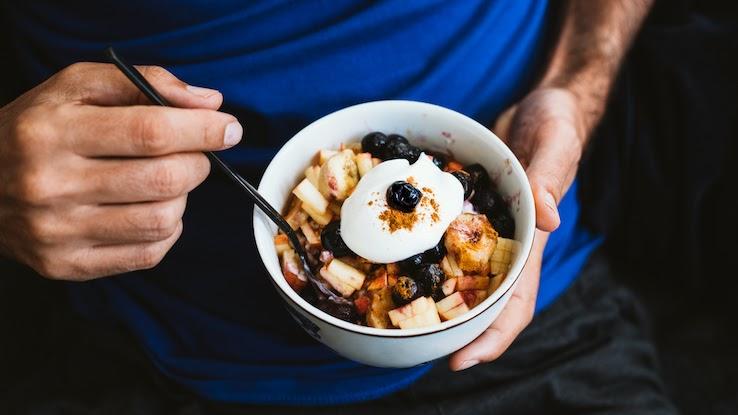
Although there are numerous prescription cholesterol-lowering medications available today, it’s still a wise idea to try and lower your cholesterol levels naturally. The key is to find lifestyle changes that lower low-density lipoprotein (LDL) cholesterol, often referred to as “bad” cholesterol, or that increase your high-density lipoprotein (HDL) cholesterol, which people often refer to as “good” cholesterol. The following are some of the best techniques for lowering your LDL cholesterol naturally.
Avoid Saturated Fats
The first thing to adjust if you have high levels of LDL cholesterol is your diet. To begin with, you’ll want to avoid foods that are high in saturated fats. Saturated fats are generally solid at room temperature (like butter) and are found in red meat, cheese and eggs.

Fewer than 10% of your daily calories should come from saturated fats. Instead, focus on eating a varied diet of healthy, unprocessed foods, including polyunsaturated and monounsaturated fats, which are liquid at room temperature, like olive or sunflower oils. The following are some healthy foods to eat or drink as part of a low-cholesterol diet:
- Fish, especially tuna, salmon, sardines and mackerel (oily fish)
- Whole grains
- Oats and barley
- Fruits like apples, strawberries and prunes
- Vegetables like sweet potato, broccoli, eggplant and avocado
- Vegetable oils like olive, sunflower, rapeseed, nut and seed oils
- Legumes like beans, peas and lentils
- Nuts
- Garlic
- Tea
- Red wine
The so-called Mediterranean diet can be one of the healthiest for your cardiovascular system. Following these diet recommendations can potentially have a significant impact on your health and your cholesterol levels. If you need help forming a balanced diet plan that works for you, speak with a doctor or a nutritionist who’s familiar with your cholesterol issues.
Increase Your Intake of Dietary Fiber
Dietary fiber binds to cholesterol and helps remove it from your body. Soluble fiber reduces LDL cholesterol levels, and insoluble fiber improves your overall gut health. Aim to consume 25 to 35 grams of fiber per day. Flaxseed is a good source of soluble fiber, with high levels of an omega-3 fatty acid called alpha-linolenic acid. You can add a few tablespoons of ground flaxseed to cereal, salads or yogurt for a little crunch and a lot of healthy fiber and fat. Other great sources of fiber include:

- Whole grains
- Oats
- Beans
- Lentils
- Fruits and vegetables
Exercise Regularly
If you have high cholesterol, it’s time to get back into a regular workout routine. At least 30 minutes a day of moderate exercise five times a week is recommended, and you can vary between aerobic exercises like jogging or biking and strength-training exercises like push-ups, sit-ups and squats. The key here is to get your body moving regularly and to push yourself a little bit more each time as you become used to the routine.

Regular exercise can lower your LDL cholesterol levels naturally and safely while creating a significant boost in your overall health. If you haven’t been exercising recently, start small with 10 minutes a day five times a week — just be sure to gradually build up the length and intensity of your workouts over time.
Losing even a modest amount of weight (5% to 10% of your body weight) can reduce your LDL cholesterol level and increase your HDL cholesterol level. And that’s not to mention the host of other health benefits it provides.
Take a Supplement
There’s a number of natural supplements that may be beneficial for lowering your cholesterol levels. Remember that you should use these in combination with professional health screenings and the support of your healthcare team. The following supplements may be recommended for lowering your LDL cholesterol:

- Soluble fiber: Many of us don’t get the required amount of dietary fiber per day, and a supplement can help. Supplements with oats, psyllium, pectin and guar gum seem to be effective in lowering LDL levels. Psyllium husk fiber in particular has few side effects and lowers LDL effectively. When taking a fiber supplement, increase the dose gradually and take it with plenty of water to avoid gastrointestinal side effects.
- Vitamin B3 (niacin): Vitamin B3 can be useful for raising your “good” HDL cholesterol. This is important because HDL cholesterol helps move LDL cholesterol out of your bloodstream and into your liver, where it is destroyed. Vitamin B3 can actually raise HDL levels by 15% to 35% and lower LDL levels by around 20%. Although it’s very effective, it does have some drawbacks. First, it may raise blood sugar, and the risk for side effects increases when it’s combined with a statin medication. Second, you’ll need a doctor’s prescription to get the high-dose capsules that are effective at lowering LDL cholesterol.
- Glucomannan: Glucomannan is a soluble fiber extracted from the root of konjac, an Asian tuber. Generally, you can take two to four capsules of glucomannan about 15 minutes before each meal. Make sure to drink a glass of water whenever taking this supplement.
- Plant sterols and stanols: Consider taking a supplement with a broad range of plant sterols (phytosterols) and stanols to help lower your LDL cholesterol. One capsule of this supplement is typically taken with each meal.
Remember that supplements are not regulated by the Food and Drug Administration and there may be great variations in the effectiveness between different brands. Speak to your doctor before you begin taking any of the supplements listed here, and be sure to mention any other medications you’re taking.
Making just one or two of these lifestyle adjustments to start with (such as eating more fruit and taking a 30-minute walk each day) can help significantly reduce your LDL cholesterol levels. If you’re taking any cholesterol-lowering medications, be sure to ask your doctor about other steps you can take to lower your cholesterol that won’t cause harmful side effects or reactions with your medication.
Resource Links:
https://health.clevelandclinic.org/from-fiber-to-fish-oil-natural-ways-to-lower-your-cholesterol/
https://www.nhlbi.nih.gov/files/docs/public/heart/chol_tlc.pdf
https://www.heartuk.org.uk/healthy-living/cholesterol-lowering-foods-1
https://www.nhs.uk/live-well/healthy-body/lower-your-cholesterol/
https://www.health.harvard.edu/staying-healthy/the-truth-about-fats-bad-and-good
https://www.mayoclinic.org/diseases-conditions/high-blood-cholesterol/in-depth/niacin/art-20046208
https://www.uspharmacist.com/article/otc-supplements-for-the-management-of-high-cholesterol





